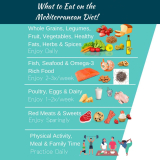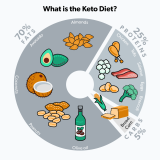Are you struggling with belly fat and looking for a natural solution to help you achieve a leaner, healthier body? Look no further than Ikaria Lean Belly Juice ...
Are you considering using Ikaria Lean Belly Juice for your weight loss journey? While the product may promise impressive results, it's crucial to be aware of ...
Discover the incredible Ikaria Lean Belly Juice benefits can offer to support your well-being and weight loss goals. Packed with a unique combination of ...
Are you looking for an effective and natural way to support your weight loss journey? Look no further than Ikaria Lean Belly Juice! This powerful concoction ...
Ikaria Lean Belly Juice has gained immense popularity in recent years due to its numerous health benefits and delicious flavors. This article explores the ...
Welcome to our website dedicated to providing clear, concise, compelling, and credible information about Java Burn reviews. Our expert team has thoroughly ...
If you're looking for a natural way to improve your digestive health and achieve your weight loss goals, Ikaria Lean Belly Juice may be just what you ...
GlucoTrust is an all-natural dietary supplement that provides a safe and effective way to manage blood sugar levels. Its unique blend of herbs and minerals, ...
Exipure is a natural dietary supplement that is designed to help promote weight loss and improve overall health. In this article, we will provide a ...
If you're looking for a natural supplement to support weight loss and improve overall health, you may have come across Alpilean. But before you make any ...
Looking to lose weight quickly? Discover the principles of the Dukan Diet and its four stages, including foods to eat and avoid. Learn about the pros and cons ...
Looking for a way to improve your health and wellness? The Mediterranean diet is a popular and effective way to reduce your risk of heart disease, improve your ...
Discover the secrets to success on the keto diet with our SEO website. Our expertly crafted content provides clear, concise information that's both compelling ...
Looking for a natural and effective solution to nail fungus? Look no further than Kerassentials Oil! Our potent blend of essential oils is specially formulated ...
Looking to improve your health and wellness through a healthy diet? Our website lumispareview.com offers expert advice, delicious recipes, and practical tips ...















